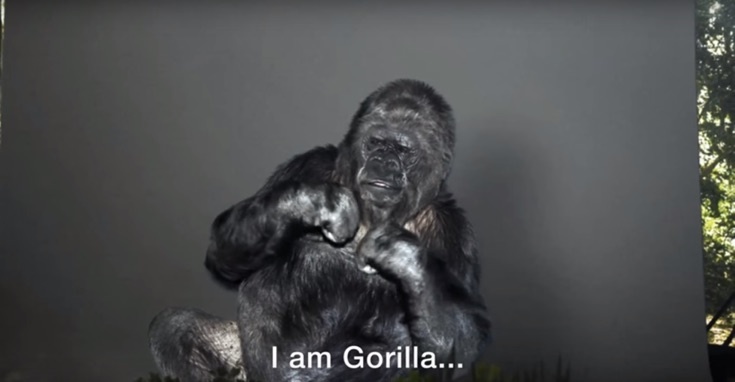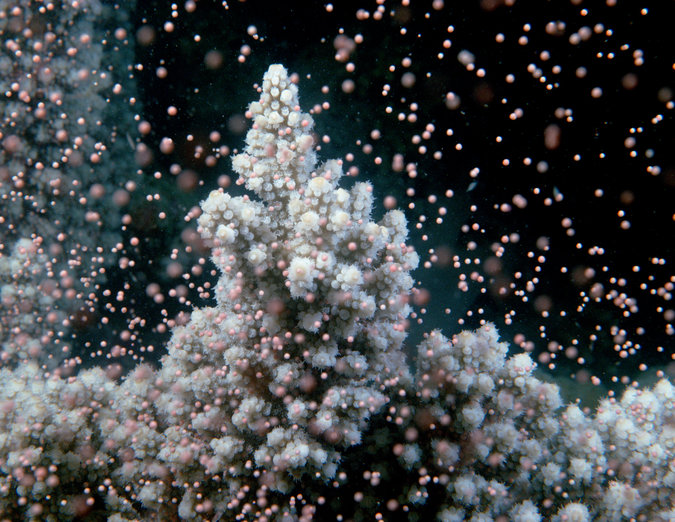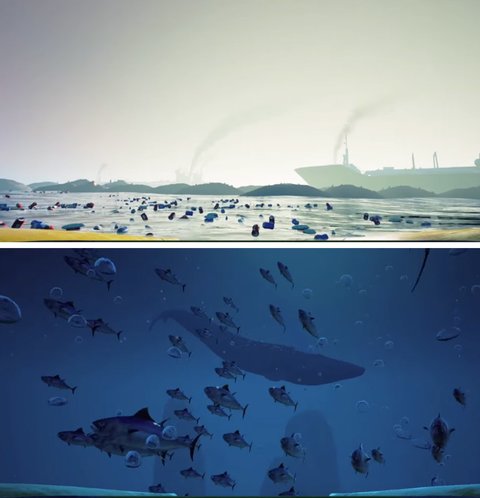By William Sosinsky
I have recently embarked on writing a book outlining the guiding principles behind Energime and the core of our methodology as we look to empower our population with the critical tools we need as we face our future challenges. The following excerpt is from a chapter in the book “The World We Will Leave Our Children.”
[blockquote text=”When did we forget we are all one Human Family? Until human beings accept the truth that we are all members of the same extended family, our dysfunctional and divisive nature is ultimately destined to destroy us as we lay waste to our environment. – WS” text_color=”” width=”” line_height=”undefined” background_color=”” border_color=”” show_quote_icon=”yes” quote_icon_color=””]
To understand our circumstances and the real challenges Mankind now faces, we must understand where the heart of the problem lies and the cause and effect relationship that is the seed from which our current challenges began.
If we are honest with ourselves we know there is a problem. Although there is existing argument and debate as to the depth of our dilemma and the eventual outcome of our current historical course, the undercurrent of concern and trepidation as to the health of our planet and the future of our species is almost universal. My son likes to point out to me that the “Web-bot”, a technical term for a program that tracks global sentiment and opinions voiced online as a predictor of future events, is foretelling the most troubling of consequences for our population. You can hear it during casual conversations at informal get-togethers. You see it reported online and in the newspapers. It is the subtext of the content that streams across our television sets or watch when we go to the cinema. We experience it when we shop or go to work, and it is embodied into the fabric of our daily lives and colors the unconscious background of each and every experience we absorb during the course of our day. We can all sense that as a species, as a population living on this fragile Earth, as individuals trying to make a go of it and survive, that things are soon going to change… and we can sense that they will not be changing for the better.
The deluge of stories, influences, and input that predicts and suggests this eventual fate is something that frightens most of us at our most subliminal and survivalist level. Whether that moment is defined by an oil spill, nuclear disaster, drought, or unprecedented weather event, or if it is as benign as the rising costs of our groceries and fuel bills we can feel the threat. It has gotten to the point where we both expect and accept these changes as being unavoidable such that we’ve become desensitized to these threats as a result. The fact that these events impact us without our consent and are too large for us to influence triggers a response that inspires varying degrees of fear, self-preservation, anger, concern, action, curiosity, or denial depending on the individual. It’s just human nature. Yet with all the evidence and continuous empirical reinforcement, we as a species have still not realized the enormity and severity of the changes to our existence that will soon threaten all of us.
This brings me to my first key question:
[blockquote text=”Must we as individuals witness the complete devastation of our planet before we commit ourselves to actively participating in changing our course?” text_color=”” width=”” line_height=”undefined” background_color=”” border_color=”” show_quote_icon=”yes” quote_icon_color=””]
To further complicate and distort our perception and understanding of what might occur in our future are the predictions of the so-called experts that we rely on for the information from which we form our opinions. These scientists, educators, and data analysts who are more than willing to make predictions of the future, or cite data that supports whatever theory they are committed to that week, often borders on the ridiculous to being outright misinformed. Yet very often they present their findings as fact. I could certainly be viewed in that category depending on your personal opinion. That being said, I would argue that there is a stark difference as to my observations and predictions as opposed to these experts. I would argue that it is their limited and specific viewpoints, no matter how educated and esteemed, which both colors and influences their perspective that makes their predictions so implausible. Climate change, global warming, resource depletion, population growth, rising sea levels, CO2 levels, acidification of our oceans as well as a hundred other influences and effects are all interrelated to a certain extent. If you fail to account for any of these extremely complex interrelationships as you try and predict the course of future events, your opinion as to what might or might not occur is going to be uneven. By the very nature and complexity of the issue, it requires a very universal and general understanding of all the components that contribute to the problems in order to account for the influences each part plays in the eventual impact these processes will have on our planet and population. Yet these experts voice their opinions for the most part based on their specific area of expertise often ignoring other areas of influence, data, and observation that are keys factors in affecting the outcome of their “prediction”.
As an example, I have seen reports recently of population growth projections published by experts in their field of expertise that predict at our present rate of growth based on current trends that we can expect to see 12 billion people on our planet by the end of this century. Such a report was issued not so long ago by a fact-finding group working with the United Nations. My immediate reaction was “Really…12 billion people?” My question to that “fact-finding” body would be “What would you suppose they will eat to survive?” Did these experts not realize you need to feed all those mouths in order to support their existence? Were these experts not aware that there have been predictive computer models around since the mid-1970s that have clearly defined the limits of our ability to “feed” our population? Did they not realize that there are comprehensive studies available addressing and predicting agricultural output, farm production, nutrient depletion, ocean biomass decline, finite phosphorous reserves (a key ingredient of fertilizer), topsoil loss, ground water depletion, loss of pollinators, habitat destruction, and increasing consumption rates that will greatly impact their predictions? These “counter” studies have definitively and eloquently demonstrated through real statistical analysis and predictive modeling that our food chain will likely be incapable of supporting a population larger than 2.5 billion people by mid-century. These are undisputed facts and projections based on clearly definable trends and quantifiable reserves. So it is clear they made a huge over-statement based on an incomplete assumption. That is of course unless we counter those trends by undertaking a massive reorganization of our food production and management practices…but I’ll get to that latter.
So the U.N. report was announced as fact and widely reported throughout the media. Worse yet, it is now accepted as the basis for policy decisions by many governments and regions throughout the world who must direct the actions and planning that will determine the future of their countries.
Then you have those experts who try and determine how high oceans levels will rise this century. They’ll base their opinions on ice caps and glaciers melting while completely neglecting to factor in the effect of what the molecular expansion of water molecules has on ocean mass/volume as the water warms. Or they will ignore historic models of previous ocean levels under similar environmental conditions that are clearly demonstrated through geological records and ice core/ocean sediment studies in their predictive data. My point is that are a lot of lazy folks out there doing very shoddy analysis and predictions based on a limited perspective and incomplete understanding of the subjects they are “experts” on. Yet once these learned and esteemed experts are published or reported by a “trusted” and “informed” media source we accept those opinions as fact.
This brings us to my second question:
[blockquote text=”If our leaders and so called “experts” do not clearly understand the issues and challenges we face, how can they possibly hope to properly focus and direct the responsive effort required to reverse the negative impact we are having on our planet and the future consequences it will have on our population?” text_color=”” width=”” line_height=”undefined” background_color=”” border_color=”” show_quote_icon=”yes” quote_icon_color=””]
These misconceptions are directly related to improper and incomplete education. Since the human race has never had to deal with the concepts of finite global resources or worldwide demand for basic necessities overwhelming supply, we have never structured our education models nor were those platforms ever designed to prepare our students to respond to such challenges in a real world sense. Even now we have separated all of the interrelated areas of sustainability into their own divisions of learning without providing the necessary linkage required for students to grasp the complete picture of the issues they will face. We teach renewable energy, advanced agriculture and food production, waste and water management, yet there is no interconnected methodology as to how you implement these changes that relates to sound fiscal policy planning that supports economic expansion. Without that connection, all this effort is nothing more than an ill-founded social experiment with a clearly predictable outcome that will assuredly fall short of its intended solution.
At the core of all these shortfalls is a general disconnect between what we fear as a population and our ability to confront those threats with decisive action. Every effort put forth so far on a global scale such as the Kyoto, Copenhagen, and Rio Summits have been dramatic failures. I have watched each of these world summits only to come away with the impression there is no current workable idea as to how we are going to resolve our differences and start working together.
The results are that we as a species are now driving towards a cliff edge with the occupants of the vehicle arguing over who planned the trip, who should step on the brakes, and who will pay for the gas. When we do act, it is in measured half steps perpetuated by the uncertainty that our leaders feel as a result of their incomplete and incorrect understanding of the threats and challenges.
Finally, I guess my last and most important questions would be:
[blockquote text=”When did we forget that we are all one Human Family?” text_color=”” width=”” line_height=”undefined” background_color=”” border_color=”” show_quote_icon=”yes” quote_icon_color=””]
When did we stop telling the story to our children of how once upon a time and long ago, every human being in the world lived together on the great plains of central Africa? That it was there that we can all trace our common lineage? That this was where our ancestors lived together and scratched out an existence? That this is the shared past which every human being on the face of the Earth today shares? When did we forget who we were?
Was it self-interest and fear spurred on by our desperate struggle to survive, or the politics of power that which made us forget we were once related? Perhaps it was those influences that divided us into tribes, villages, societies, political parties, ethnic groups, religions, and countries such that we waged war on our brothers and sisters, stole their riches and lands, laid waste their homes, and slaughtered and enslaved their children? When we could no longer trust ourselves to act benevolently, we expected nothing more from them and acted accordingly. We had the excuse of protecting ourselves and our vital interests to fall back on. When did we decide that “those people” were no longer our relations? When did we decide that they had fallen from grace and were now a threat? When did we conclude that they deserved it and had it coming? They were less than… less human, less civilized, less intelligent, less deserving. You know…those people. Those communists, those capitalists, those extremist Muslims and infidel Christians, those uppity niggers and racist crackers, those hypocritical Catholics and self-righteous Protestants, those money-grubbing Jews and godless fascists, those tree-hugging liberals and those right-wing religious nuts. Gooks, micks, rag heads, spics, wops, camel jockeys, Yankees, ruskies, japs and krauts. You know…them.
The undeniable and scientific truth is there is no us and them. There are only us. Today’s advanced genomics are capable of tracing every human being’s common lineage back to basically a score of mating couples that lived more than 2 million years ago on the central plains of Africa. Every male on the planet (99.9%) can trace their genetic lineage to a single male ancestor. Any variations in appearance and customs are the result of small changes that manifested themselves over thousands of centuries of our specific histories as we separated and settled throughout the world in an effort to find new resources to survive and prosper. Still, with all that current knowledge and clear understanding of our shared past we consciously or subconsciously feel comfortable with minimalizing, disregarding, exploiting, or at worst dehumanizing those with customs we don’t understand, and physical features we view as foreign.
And that’s the real issue isn’t it? In order for us to solve these challenges which are global in scope we need to get all these diverse groups to work together to solve what are now are twin mutual issues; resource depletion and environmental degradation. It will require cooperation and collaboration on an unprecedented scale if we are to mount an effective response. After all, if one group stops burning fossil fuels sending CO2 into the atmosphere and the others continue polluting, or over-harvesting ocean stocks, or over-consuming global resources, you still have the same problems and suffer similar consequences even though you did your part to be sustainable. These are not issues that any one country or region can solve by themselves. Yet human beings are cursed with an over-riding preoccupation with self-interest and an underlying fear of the unfamiliar that hamstrings all our efforts to bridge our differences and work together with common purpose. That is unfortunately human nature in its purest and most prominent form.
The reason I bring this up is because it is imperative we remember this truth and that the great majority of us understand and embrace this reality on an emotional, spiritual, and ultimately practical level. This will be the only way we can surmount our current challenges and prosper as a species past the middle of this century. With it we evolve. Without it we usher in a very austere and dark future. It has come down to that one simple concept. It is from this understanding that the structure and impetus for our solution must flow if we are to counter our current threats. Gandhi, Einstein, Jesus, Confucius, Muhammad, and countless other visionaries throughout our history have dreamed of unifying principles and ideals to elevate us from our ignorance, yet Mankind has failed to embrace this higher purpose. We must get beyond our divisive nature born of years of separation, self-interest, and fear of one other or it will ultimately be the reason we destroy ourselves and our environment. We must remember we are all one human family.





